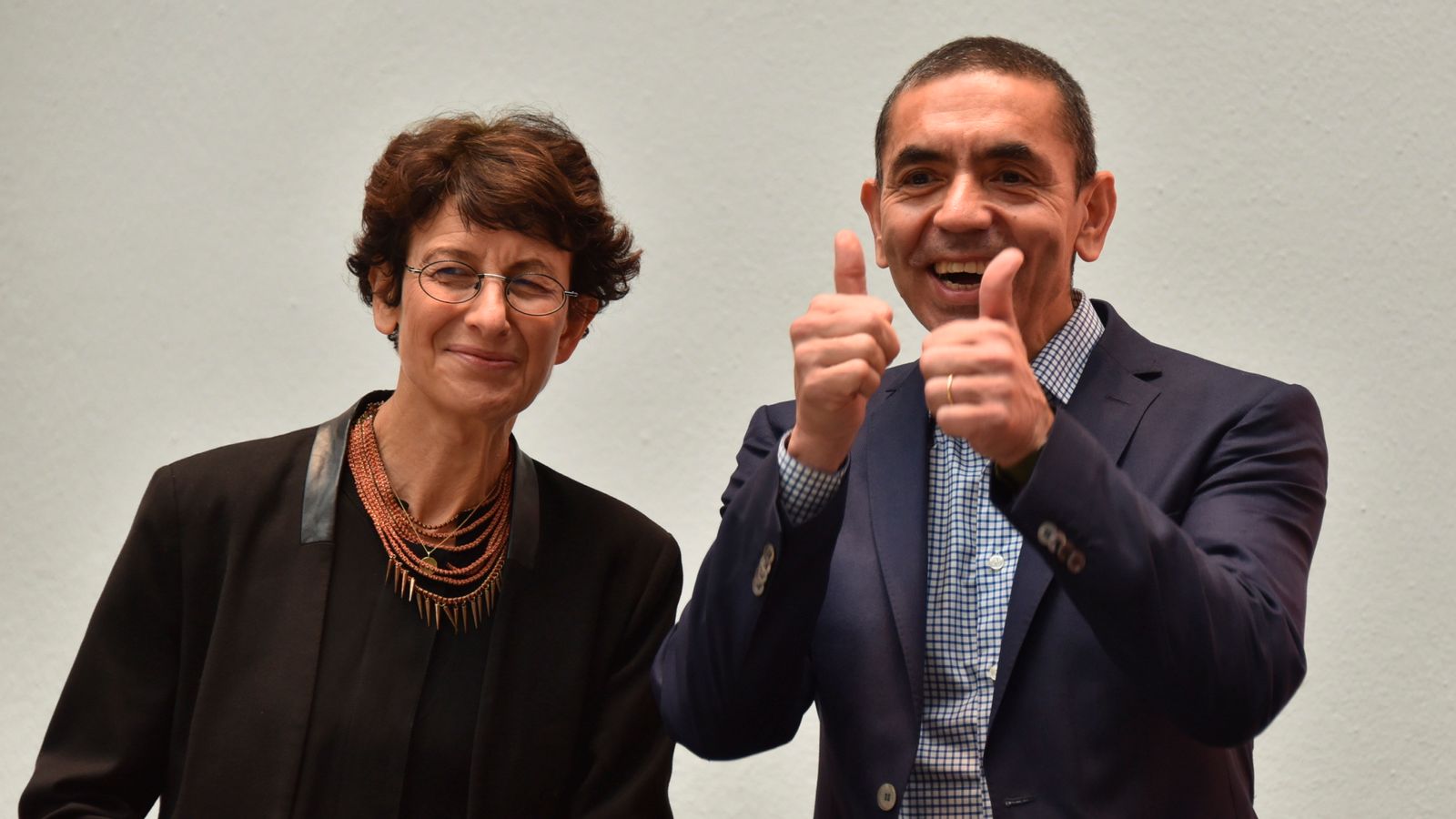Vaccines that treat cancer could be accessible to patients as early as the next decade, say the BioNTech developers.
While scientists are tentative about using the term “cure”, the cancer vaccine in progress may have the potential to significantly treat and fight cancer cells.
Professor Ugur Sahin and Ozlem Tureci, have found new “breakthroughs” in treating cancer cells, which they attribute to their earlier work on the COVID vaccine.
The duo previously worked together to pioneer cancer immunotherapies tailored to individual patients, having co-founded BioNTech together in Mainz, Germany, in 2008.
The husband-and-wife team, who successfully developed the Pfizer vaccine, have said their progress during the pandemic on the use of mRNA technology “gives back to our cancer work”.
While typical vaccines contain a small portion of the virus used for immunisation, mRNAs distinctively use only the virus’ genetic code.
This functions in a similar way once injected into the body, allowing the body to produce antigens and build up the immune system against the disease.
Weekly COVID-related deaths up by nearly 40% in England and Wales
COVID pandemic caused changes to global mortality not seen in 70 years, say researchers
COVID cases are rising again – do we need to worry?
Professor Tureci commented that these scientific developments have enabled regulators to learn about mRNA vaccines and how to deal with them – and this will “accelerate” the cancer vaccine.
She said: “What we have developed over decades for cancer vaccine development has been the tailwind for developing the COVID-19 vaccine, and now the COVID-19 vaccine and our experience in developing it gives back to our cancer work.”
“We have learned how to create better, faster manufacture vaccines. We have learned, in a large number of people, how the immune system reacts towards mRNA.”








